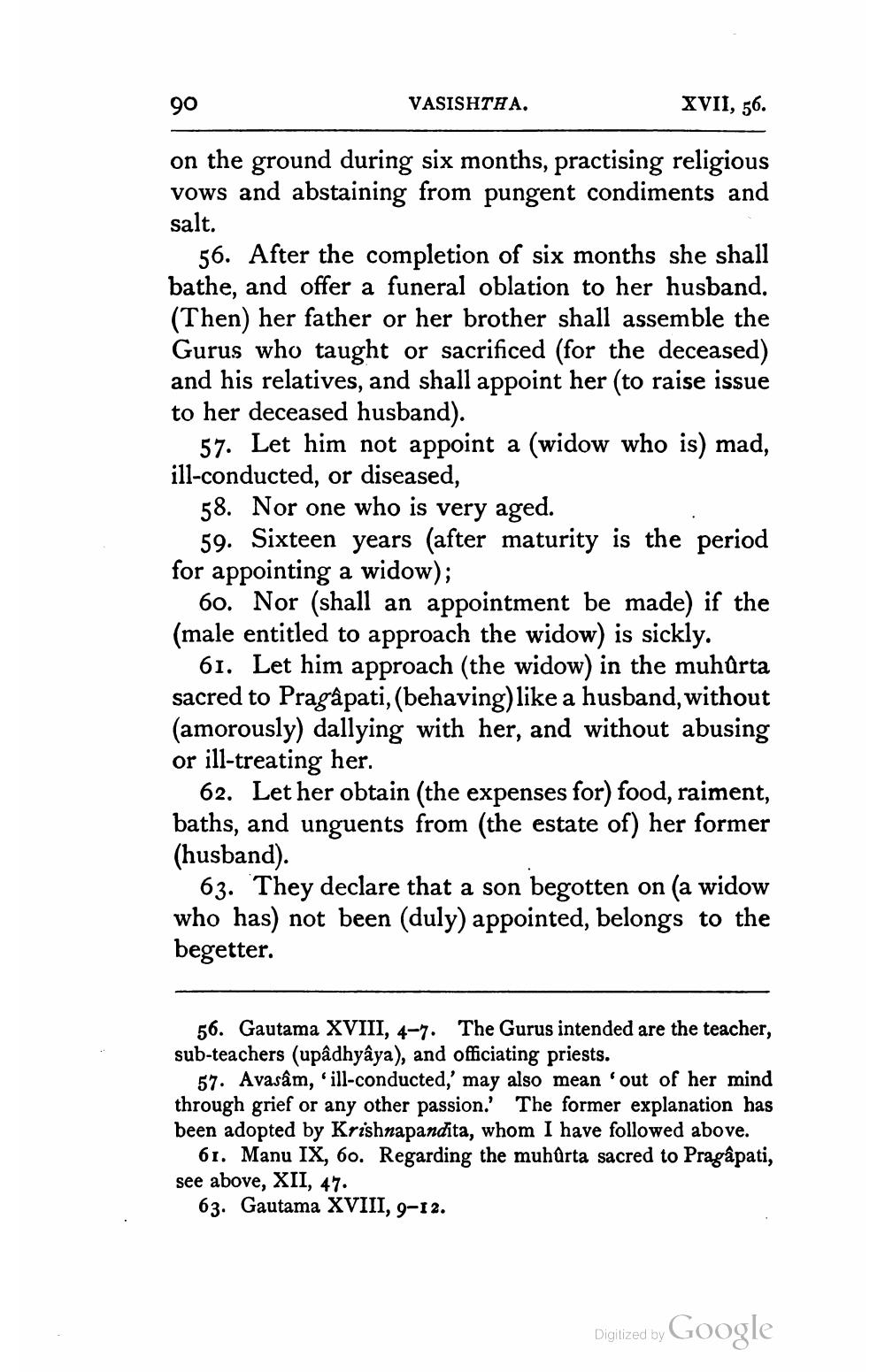________________
90
VASISHTHA.
XVII, 56.
on the ground during six months, practising religious vows and abstaining from pungent condiments and salt.
56. After the completion of six months she shall bathe, and offer a funeral oblation to her husband. (Then) her father or her brother shall assemble the Gurus who taught or sacrificed (for the deceased) and his relatives, and shall appoint her (to raise issue to her deceased husband).
57. Let him not appoint a (widow who is) mad, ill-conducted, or diseased,
58. Nor one who is very aged.
59. Sixteen years (after maturity is the period for appointing a widow);
60. Nor (shall an appointment be made) if the (male entitled to approach the widow) is sickly.
61. Let him approach (the widow) in the muhûrta sacred to Pragâpati, (behaving) like a husband, without (amorously) dallying with her, and without abusing or ill-treating her.
62. Let her obtain (the expenses for) food, raiment, baths, and unguents from (the estate of) her former (husband).
63. They declare that a son begotten on (a widow who has) not been (duly) appointed, belongs to the begetter.
56. Gautama XVIII, 4-7. The Gurus intended are the teacher, sub-teachers (upâdhyâya), and officiating priests.
57. Avasâm, ill-conducted,' may also mean 'out of her mind through grief or any other passion. The former explanation has been adopted by Krishnapandita, whom I have followed above.
61. Manu IX, 60. Regarding the muhůrta sacred to Pragâpati, see above, XII, 47.
63. Gautama XVIII, 9–12.
Digitized by Google




